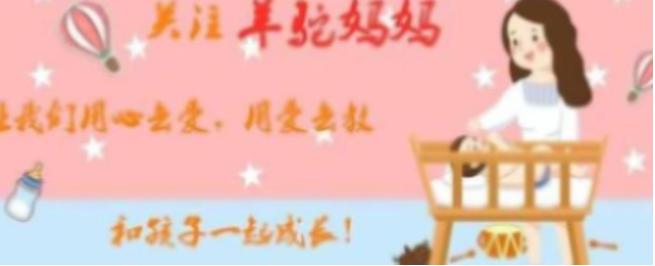Too sensible children: easy to form a sense of low value
Author:Tiandi Publishing House Time:2022.07.21
"Obedient obedience" is often the definition of a good child. When we were young, we might be particularly obedient in front of our parents. When we were our parents, we always wanted our children to be obedient.
In fact, behind the obedience is the child's emotions "feeding" their parents. Children's too good obedience reflects that parent -child relationships are likely to be not healthy.
I watched a video on the Internet. After the husband and wife quarreled, they were unhappy in the room. When the little boy was unhappy, he ran to his room and took out the clown mask to tease his mother. However, this time my mother did not smile as before, but just looked at the front quietly. As a result, the little boy replaced the mask many times back and forth, and desperately dressed up in front of his mother. An hour passed, the mother finally laughed, and the little boy was sweating.
I do n’t know how you see this scene. Is it envious of this mother who has a sensible child or sympathize with the child to coax parents at a young age? It is also possible that you will think of yourself when you are a kid, and you often work hard because you want to take care of your parents' emotions.
Parents are emotionally unstable, and they often look locked or lose their temper, cry, etc., which will bring a very anxious feeling to their children. In the past, we often said that the children of poor people had been headed early. In fact, these children were very anxious, because they not only had to do all kinds of jobs that should not be done by them, but also faced parents who worked hard all day. They were forced to turn into "little adults". On the surface, they were particularly sensible and independent, but they often felt sad, and even trauma. On the one hand, they felt guilty, felt that they could not take care of their parents, or had a burden on their parents; on the other hand, they would pity themselves.
These "little adults" are also yearning for carefree and willful children. When they grow up, some of them may become "big men" and in turn need to be taken care of. This is a compensation psychology.
Even if they did not become a "big man" in the end, their relationship with the native family would be entangled, and neither side could become an independent individual. When they want to develop themselves, do things or make goals, they will involuntarily look at their parents' faces. They do not do things for themselves, but to make their parents happy.
Tell my own story.
When I was young, the conditions at home were not very good, and my mother worried about her livelihood every day. The school wants to hold a sports meeting, and I must have a pair of white sneakers to participate. I was anxious for this matter for many days. In the end, there was no way, so I had to talk to my mother and say that I would buy a pair of white sneakers. At this time, the mother suddenly cried, blaming the school why there was such a rule. I saw my mother's fragility and felt that I was particularly ignorant, so I comforted my mother and said it was okay. I would not attend the sports meeting. At that time, I was very well -behaved and sensible, but now I always feel distressed myself. Later, my mother still borrowed money to buy me white sneakers, but every time I put on those shoes, I felt guilty and felt trouble to my parents.
In fact, the negative impact of such "children of poor people early" on children will not be great. After all, this will also stimulate children's sense of self -reliance and struggle. The negative impact on children is the kind of behavior that has nothing to do with economic conditions to "coax parents".
Many parents and children get along with their children to accommodate and adapt to themselves. This kind of parents who need to take care of their feelings in turn are essentially controlling the child with guilt, which will cause destruction to the child's self -worth.
Why do you say this way? In fact, children are always well -behaved, obedient, and sensible, and they are happy to coax their parents. There are both children's love for their parents and fear, and it can even be said to be a distressing survival strategy. When parents are always unhappy in front of their children, emotional unstable, and each time the child compromises and changes, the child will feel that the parents do not love themselves. Only by catering to the parents and coaxing their parents can they get the love of their parents. Essence This is very sad. If the child can't make his parents happy no matter what he does, he can't experience his sense of value.
I have a case about adults. He is no longer young, but every time he enters the consultation room, he will stare at me first, saying that you want to see if I like him or not, or if he hates him. Later, he told me that when he was very young, he had to adjust his emotions every time he returned home. Because his mother was frowning every day, busy handling housework. He never saw his mother very happy, even if he was eating, his mother turned silently to the kitchen after eating. Therefore, when he is with his mother, he feels stressful.
He remembered once that he got a little red flower and returned home happily, but called her mother several times, and her mother didn't hear it. She seemed to have been immersed in her world. He said he felt desperate at that moment, and even worried that his mother would die. Since then, he has begun to do a lot of things for his mother, but because his mother is particularly picky and feels that he can't do anything well, so he can always see his mother's disgusting expression, which makes him feel that there is no way to come to this world. mean. In this family, the mother does not seem to be a glow, but a black hole. No matter how high he is outside, as long as he walked home to his mother, he felt that the energy on his body was absorbed.
In fact, children's emotional caregivers are often phenomenon in Chinese culture. In the traditional "Twenty -Four Filial Piety" story, "The Intelligence of the Two" is about a 70 -year -old old man who is still playing with his parents by dressing up a child. When he fell and it hurts, in order to prevent his parents from worrying, he Also lying on the ground and deliberately learned children crying. This old man is very filial to his parents, but I have seen some sadness from it. If you are a parent, how can you avoid turning your child into a person who has to feed your parents? I suggest you try to do so.
First of all, detect the expression on your face, look at the mirror, and see what you look like. Many mothers told me that the children were unwilling to communicate with themselves in their adolescence and kept themselves in the room all day. But they may not realize what the expression on their faces looks like, is it frowning, frowning, and full of resentment? When the child sees the expression on his mother's face, what will his inner feelings look like? Who would like to face a black hole? At that moment, he found that he was unable to take care of his mother, so he hid himself.
Secondly, you have to learn to be responsible for your emotions. To distinguish your emotions and others' emotions. Your own emotions are responsible and managed by yourself, so that others cannot make others a trash can for your emotions. You must distinguish whether you are doing things or venting your emotions. Many times, you think you are doing things, but in fact you just vent your emotions, such as washing dishes when you are angry, making the bowl ping -pong, and even fell. You want to let others pay more attention to you, but you forget that your negative energy will be passed on to your family, making them very uncomfortable. They have no obligation to feed your emotions.
We might as well find a container that can store their emotions. This container may be music, painting, or other things you like. In this quiet container, you can slowly perceive your emotions, accept it, and then improve it.
Finally, you need to have a healthy boundary with your child. There is an advertisement, a child in the picture washed a pot of water with a pot of water to wash his mother's feet. Although the child's face is happy, but if I am the mother, I will tell the child: "Children, you are very happy to be a mother, but the mother can do these things by themselves, you just need to complete your own affairs. "
Just like a couple I have ever seen, many people praise their children is great, filial, and the pride of parents, but the couple calmly said that in fact, they also live well. You can. Therefore, parents should be supporters behind their children, not emotional aspirations.
In short, when you can realize the expression on your face in time, you can be uncomfortable, and you can realize that your emotions are responsible. You should have a healthy boundary with your child. Will also be willing to communicate with you. Moreover, children do not need to take care of their parents, and they may also learn from parents to handling personal emotions. In this way, positive interaction occurs.
What should you do if you have to "coax your parents" from a young age? In the same way, you need to realize whether you are overly responsible for your parents' emotions. While taking care of them, you also need to build a healthy boundary with them.
Author: Hu Shenzhi

(Relational psychologist, the leader of Sunflower Dad, was named one of the 50 most influential psychologists in China by a psychology. With more than 20 years of consulting and practical experience, 15,000 hours of case experience, he used to be CCTV "Psychological Interview "Special guests; Hunan Satellite TV" Transformeter "specially invited psychological consultants; authored" If Father Loves absent "," Senior Psychologist Parenting Notes (0-3) "," Senior Psychologist Parenting Notes (3-7) " Psychological books such as "High EQ Communication".
- END -
"Who does not buy a house for the child?" Facing the post -00s question, the post -80s par

The rise in the real estate industry has made parents the biggest victims.For many...
After having children, how to maintain and improve the happiness of the family for a long time?

Recently, in some hot search, there is a question about what moment the newborn fa...